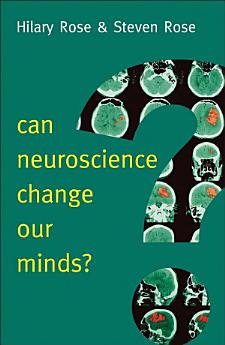Can Neuroscience Change Our Minds?
2016年9月 · John Wiley & Sons
4.5star
2則評論report
電子書
176
頁
report評分和評論未經驗證 瞭解詳情
關於本電子書
Neuroscience, with its astounding new technologies, is uncovering the workings of the brain and with this perhaps the mind. The 'neuro' prefix spills out into every area of life, from neuroaesthetics to neuroeconomics, neurogastronomy and neuroeducation. With its promise to cure physical and social ills, government sees neuroscience as a tool to increase the 'mental capital' of the children of the deprived and workless. It sets aside intensifying poverty and inequality, instead claiming that basing children's rearing and education on brain science will transform both the child's and the nation's health and wealth.
Leading critic of such neuropretensions, neuroscientist Steven Rose and sociologist of science Hilary Rose take a sceptical look at these claims and the science underlying them, sifting out the sensible from the snake oil. Examining the ways in which science is shaped by and shapes the political economy of neoliberalism, they argue that neuroscience on its own is not able to bear the weight of these hopes.
Leading critic of such neuropretensions, neuroscientist Steven Rose and sociologist of science Hilary Rose take a sceptical look at these claims and the science underlying them, sifting out the sensible from the snake oil. Examining the ways in which science is shaped by and shapes the political economy of neoliberalism, they argue that neuroscience on its own is not able to bear the weight of these hopes.
評分和評論
4.5
2則評論
關於作者
Hilary Rose is Emerita Professor of Social Policy at the University of Bradford. Together with Steven Rose, she is author of "Genes, Cells and Brains" and "Alas, Poor Darwin".
Steven Rose is Emeritus Professor of Neuroscience at The Open University. He was co-founder of the British Neuroscience Association, and has won numerous prestigious awards, including the Biochemical Society medal for communication in science and the British Neuroscience Association's lifetime award for "Outstanding contributions to neuroscience".
為這本電子書評分
歡迎提供意見。
閱讀資訊
智慧型手機與平板電腦
筆記型電腦和電腦
你可以使用電腦的網路瀏覽器聆聽你在 Google Play 購買的有聲書。
電子書閱讀器與其他裝置
如要在 Kobo 電子閱讀器這類電子書裝置上閱覽書籍,必須將檔案下載並傳輸到該裝置上。請按照說明中心的詳細操作說明,將檔案傳輸到支援的電子閱讀器上。




